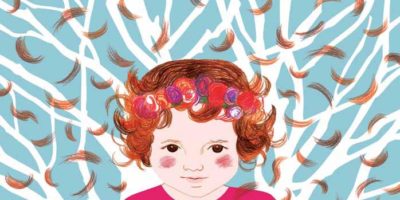How Jewish texts can help women — rabbis included — through trying transitions
Rabbi-editors Sue Levi Elwell and Nancy Fuchs Kreimer invited women rabbis, scholars and activists to share the Jewish texts they have found themselves applying in their own lives. The contributors to Chapters of the Heart: Jewish Women Sharing the Torah of Our Lives (Cascade Books, $26) include Julie Greenberg, Judith Plaskow, Blu Greenberg and Wendy Zierler. Rabbi Hara Person writes of raising a son and finding wisdom in stories of the biblical King David. Rabbi Rachel Adler observes her mother’s cognitive slide into forgetting, and the book of Lamentations is Adler’s benchmark. Rabbi Laura Geller looks back many decades to her divorce, examining it through the lens of Sarah and Abraham setting out on a journey when they were no longer young. And here is Rabbi Sheila Peltz Weinberg on coming to a mature understanding of her professional role:
As a congregational rabbi I felt great pressure to be someone who was always interested in others. Always. The truth is I was not always interested. I also had to demonstrate how “spiritual,” “deep,” “serious and seriously Jewish” I am. Especially as someone in the early wave of female rabbis, I felt so compelled to get it right. Shoring up a persona of “spiritual” has a grave downside, like any persona — intellectual, manager, healer, etc. So much energy is invested in the persona, the false God, that the true God, the true life force, one’s unique passion, is concealed, and at worst, even buried alive….
At the Passover seder we are invited to lay back on super comfortable chairs or to just “lounge around.” Reclining as free people counters restlessness. We place the body in a position of repose, in a place of faith and trust. This posture opens a door to relaxing the fretting brow and the urge to pace the floor. When I am relaxed in my body, my mind is relaxed as well. I have a chance to ponder relationships, causes and consequences. I have the opportunity to live purposefully at whatever stage of life.
In the new book Kaddish: Women’s Voices (Urim, $27.95) editors Michal Smart and Barbara Ashkenas gather 52 reflections on the experience of mourning. Belda Lindenbaum writes here, “For some women it is no longer a lonely experience. Still, the road to understanding women’s spiritual needs and making room for them, both figuratively and physically, is a long one, and we have barely begun the journey. Most of the liturgy is wonderfully poetic. A phrase that is dear to me appears in the morning prayers; You have changed my mourning into dancing/You have removed my sackcloth and girded me with joy/So that I might praise You and not remain silent/God, my God, forever will I thank You. Is this not a paradigm for loss and acceptance? For me, it also speaks to women’s need to be seen and heard within Judaism. If God sees us and hears us, and acknowledges us as part of God’s community, then where is man?”




